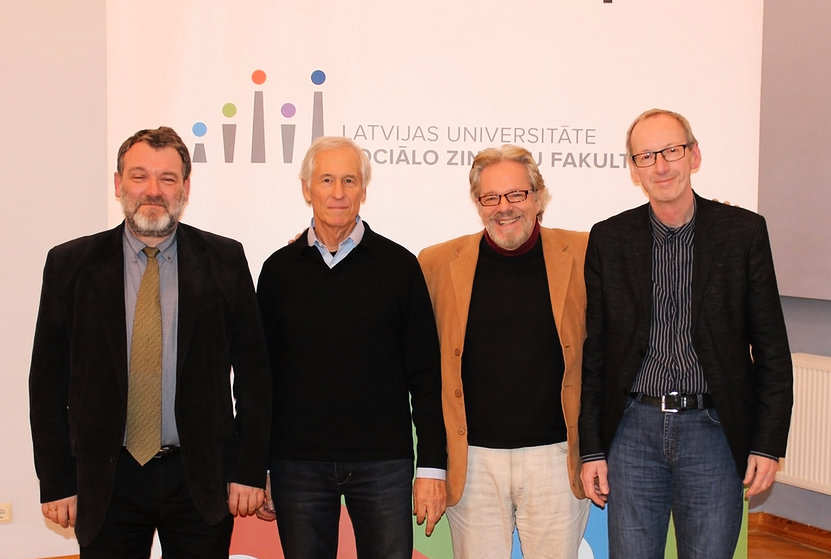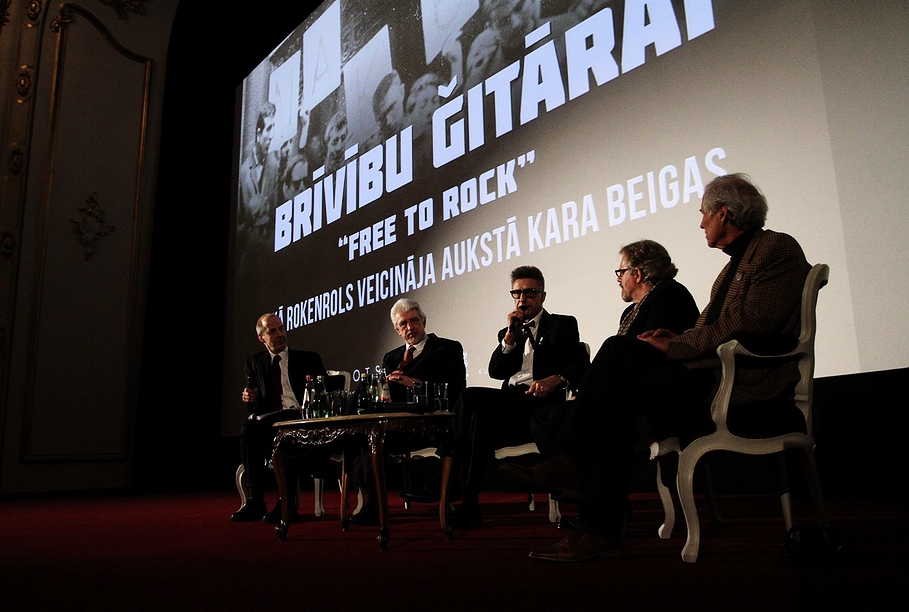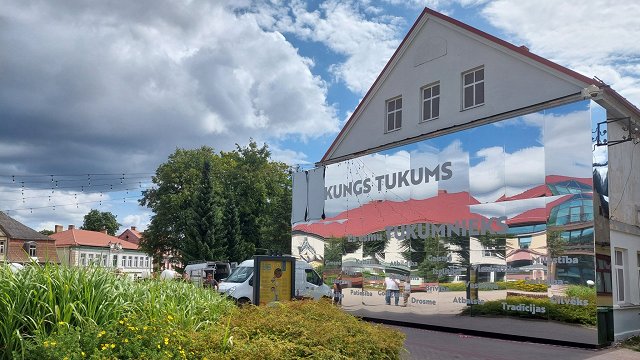The sold-out screening was packed with diplomats and members of Latvia’s music and media spheres to see Doug Yeager and Nick Binkley’s co-produced feature documentary on the true cause of the Cold War’s end, following introductory remarks by Minister of Culture Dace Melbarde and the US Embassy's acting Chargé d'Affaires Sharon Hudson-Dean. After the film the producers spoke to the audience in a panel with Latvia’s pioneer rockabilly dissident Pits Andersons, Saeima member and former Latvian Institute director Ojārs Ēriks Kalniņš, which was moderated by weekly news journal Ir editor Pauls Raudseps.
The film follows the decades-long seepages of western youth-oriented rock culture into the closed society the Soviet Union and Warsaw Pact states tried to maintain. The story is told first among many Soviet musicians who were rocked by the sounds emanating from the crazed western kids and their musical idols of the time that were being broadcast on forbidden foreign channels, key members of the scene having long emigrated to the west at their first opportunity.
Later the film traces some of the key western musical artists (and impresarios) who visited the Soviet Union or Eastern Europe during the Cold War and later Perestroika times before communism’s collapse, including the Beach Boys, Nitty Gritty Dirt Band, Elton John, Billy Joel, Scorpions, and more, all of whom brought home the latent realization that cultural diplomacy would eventually achieve what a military arms race and government propaganda never could.
But eventually, after interviewing Kalniņš and former Latvian president Vaira-Vīķe Freiberga, the producers manage to solicit talks with former Soviet President Mikhail Gorbachov and US President Jimmy Carter (who sent the Nitty Gritty Dirt Band to Russia, Armenia, Georgia and Latvia in 1977), both of whom confirm the basic premise of the film: back in the USSR, rock music wound up bringing down the house.
As if in apoplexy ahead of the release of the film, Russian lawmaker Yevgeny Fyodorov launched a soon-to-be-trolled viral video accusing the US Central Intelligence Agency (CIA) of helping Viktor Tsoi, leader and songwriter of Soviet rock group Kino (killed in a 1990 highway accident in Latvia’s Kurzeme province), write his subversive and politically-tinged works that made him an underground hero for the entire late-Soviet youth generation, reported Radio Free Europe/Radio Liberty in April of 2014.
In fact, on Tuesday 'Free to Rock' made its true premiere at the University of Latvia's Faculty of Social Sciences, where acting dean Juris Rozenvalds and film scholar and critic Viktors Freibergs welcomed Binkley and Yeager after introductory remarks to the students by political science professor Ivars Ījabs.

More than $1 million was spent making the film, including a $550,000 grant from the National Endowment for the Humanities, as well as Russian rocker Stas Namin's foundation, the Rock'n'Roll Hall of Fame and Binkley’s own private funds.


























